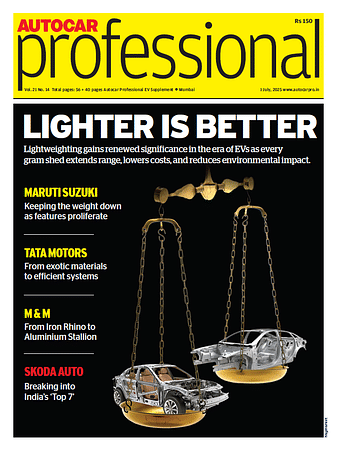EV companies, government believe no need for new subsidies: Piyush Goyal
The Minister of Commerce and Industries said there are many options and ideas in nearly every industry that can help promote electric mobility, and switching from traditional ICE vehicles to electric ones makes good economic sense.
Amid uncertainties regarding the future of incentives for electric vehicles, the minister of commerce and industry, Piyush Goyal on Friday, said the government and electric vehicle makers believe there is no need for new subsidies for electric vehicles.
“Electric mobility is ready and set to fly. They do not need newer incentives or subsidies. The existing subsidies are available for some more time and they will help give an appropriate kick-start to the EV ecosystem,” Goyal said in a media briefing.
Goyal’s comments come after he met with the representatives from the electric vehicle manufacturing sector and officials from the Ministry of Heavy Industries, the Ministry of Power, and NITI Aayog on Friday to discuss battery swapping and electric vehicle charging infrastructure.
Currently, the demand incentives for electric vehicles – two-wheelers, three-wheelers, buses, trucks and ambulances – are given under the recently launched Rs 10,900-crore PM E-Drive scheme.
“Everybody was unanimous in the room that once the existing subsidy regime comes to an end, none of them requires the subsidy to grow further. With battery costs and the advantages of cost of ownership…everybody across sectors was unanimous. Each sector has one or the other model which makes it self-sustaining and does not call for further subsidies," he said.
As the government moved from the FAME scheme to EMPS and finally PM E-Drive, there has been a gradual reduction in per-vehicle subsidy, signaling a change in the support mechanism for the sector. Senior government officials have hinted that demand incentives for electric two-wheelers and three-wheelers are likely to be phased out from 2026-27.
“Now in almost all sectors, there are options and ideas available by which electric mobility can be successfully marketed. It is a good economic case to move from ICE vehicles to electric vehicles,” Goyal added.
Anish Shah, the group CEO and MD of Mahindra Group and former president of FICCI, had recently said the electric three-wheeler industry will not have to depend on government subsidies beyond 2025-26, as the industry will have reached a level of scale of self-sufficiency.
Apart from demand incentives for the purchase of electric vehicles, the government also supports electric vehicles through a production-linked incentive (PLI) scheme for automobile and auto components to boost domestic manufacturing of advanced automotive technology products and attract investments in the automotive manufacturing value chain.
RELATED ARTICLES
New 1.5‑Litre NA Engine Joins Tata’s Powertrain Offerings, Sibling to Turbo‑DI Mill
New 1.5-litre naturally aspirated engine is expected to be a derivative of the 1.5-litre direct-injection turbo-petrol m...
Tata Altroz EV a Key Part of Future EV Line up
Tata Motors has codenamed the Altroz EV as Ascot.
Tata Motors Develops New Platform for Next-Generation Harrier and Safari SUVs
The second-gen Harrier and new-gen Safari are codenamed Taurus and Leo, respectively.





 By Kiran Murali
By Kiran Murali
 03 Jan 2025
03 Jan 2025
 6411 Views
6411 Views









